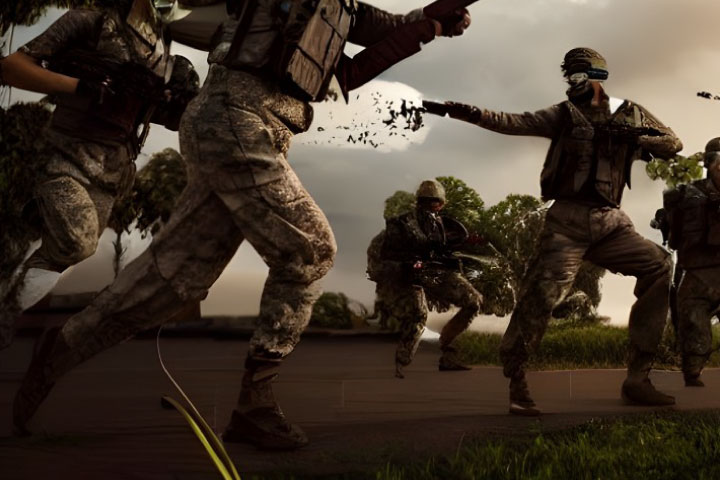Why did Ecuador recognize the existence of a non-international armed conflict?
Ecuador is going through critical times due to a serious insecurity crisis that has spread throughout the country. Numerous news items are circulating in social networks, many of them false, which is why we believe it is important to provide a brief summary of the most relevant points in order to understand what the country is going through today.
Background: On December 14, State Attorney General Diana Salazar generated a major impact in Ecuador with the “Metastasis” case, an investigation that revealed links between drug trafficking and the justice system, prisons, police and politics. This extensive operation, with 75 raids in seven provinces, involved some 900 prosecutors and police officers, and at least 38 people were investigated. The operation stemmed from an investigation that lasted more than a year, based on chats obtained from the cell phones of drug trafficker Leandro Norero, alias ‘El Patrón’, who died on October 3, 2022. The links that came to light in this case caused revolts in the prisons, a situation that caused the State to take control of the prisons, which had been under the control of organized crime groups for more than a decade, and prepared for their reaction.
Results of the “Metastasis” case and takeover of the prison:
- On January 7, Adolfo Macias, alias “Fito”, leader of Los Choneros, escaped from Guayaquil’s Litoral prison, where he had been serving a sentence since 2011 for organized crime, drug trafficking and murder.
- Following this escape, on January 8, Fabricio Colón Pico, leader of Los Lobos and accused of planning the murder of prosecutor Diana Salazar, also escaped from Riobamba Prison. That same day, the government acknowledged that the escapes occurred because the prisons were no longer under its control, becoming unsafe places.
- The night of January 8 was critical for Ecuador, as criminal groups terrorized citizens with car bomb explosions in at least eight cities, kidnapping of prison guards and death threats, among other atrocities.
- On January 9, an armed group broke into the TcTelevision television channel in Guayaquil, threatening with weapons and taking the channel’s workers hostage. The National Police acted quickly to control the situation, avoiding loss of life. In addition, an armed group attacked the Avenida de los Bomberos inGuayaquil, causing the death of one person and leaving a teenage girl seriously injured.
- Today, January 10, the President, in a National Network, informed that we are going through “a very hard moment”. He clarified that the government is firm and warned that “lukewarm governments are over”. He added that “this wave of violence is not an accident; we were beginning to implement our security plan”.
Government actions to take control: On January 8, the President, by Executive Decree No. 110 (attached), declared a State of Exception throughout the national territory due to a serious internal commotion, based on the increase of violence and criminality in prisons and cities, as detailed in the background.
On January 9, the President added to the State of Emergency declared on January 8, the recognition of the existence of an internal armed conflict, and in exercise of the provisions of Art. 164 of the Constitution and International Instruments, identified 22 transnational organized crime groups as terrorist organizations and belligerent non-state groups by means of Executive Decree Nr. 111 (attached).
Former presidents of Ecuador, regardless of their political affiliation, have joined forces to combat organized crime and restore peace in the country. Ecuadorian political figures have added their support to the president, recognizing that this is a struggle of the Ecuadorian people. In addition, many countries around the world have expressed their support, such as U.S. Ambassador Michael Fitzpatrick, who confirmed that his country will present an assistance package to help with the Executive’s security plans.
Situation analysis: With the declaration of an internal armed conflict, the main responsibility for security issues now falls on the Armed Forces, not only on the national police.
The fundamental difference in the role of the Armed Forces in Non-International Armed Conflicts (CANI) lies in their transformation from a deterrent component to an actor directly involved in combat. This change is in accordance with the provisions of International Humanitarian Law, specifically the Geneva Conventions. These Conventions constitute a set of regulations regarding the modalities of armed conflicts, seeking to mitigate their impacts and, above all, to safeguard those individuals who do not actively participate in the hostilities.
Among its main functions are the defense of the State and national sovereignty, repression of rebellions, maintenance of internal order and protection of the civilian population, as well as taking part in negotiation and conflict resolution processes.
Article 3, shared by the four Geneva Conventions, addresses CANI as a new category that had not been contemplated. These conflicts may involve a variety of situations, including civil war.
This common article provides for fundamental rules and functions as an independent convention within the Geneva Conventions.
Fundamentally, it provides for the following:
“(1) Persons taking no direct part in hostilities, including members of the armed forces who have laid down their arms and persons placed hors de combat by sickness, wounds, detention or any other cause, shall, in all circumstances, be treated humanely, without any adverse distinction of any kind based on race, color, religion or belief, sex, birth or fortune or any other similar criteria.
In this regard, they are prohibited, at any time and place, as far as the above-mentioned persons are concerned:
a) attacks on life and bodily integrity, especially murder in all its forms, mutilations, cruel treatment, torture and torture;
b) hostage taking;
c) attacks on personal dignity, especially humiliating and degrading treatment;
d) sentences handed down and executions without prior trial before a legitimately constituted court, with judicial guarantees recognized as indispensable by civilized peoples.
2) The wounded and sick shall be collected and assisted.
An impartial humanitarian agency, such as the International Committee of the Red Cross, may offer its services to the Parties to the conflict.
In addition, the Parties to the conflict shall endeavor to bring into force, by means of special agreements, all or part of the other provisions of this Convention.
The application of the above provisions shall have no effect on the legal status of the Parties to the dispute.”
International Humanitarian Law (IHL) seeks to protect persons who do not or no longer take direct part in hostilities, as well as to limit the means and methods of warfare. It is also known as the “Law of War” or “Law of Armed Conflict” and is found primarily in the Geneva Conventions. Its fundamental objectives are to mitigate human suffering during armed conflicts and to preserve the dignity and rights of those affected.
We hope that, with the international assistance offered, the State can quickly control this crime wave and that we can once again live in peace in our beautiful country, Ecuador.
ARTICLE NATIONAL SITUATION is going through critical times due to a serious insecurity crisis that has spread throughout the country. All kinds of information is circulating in social networks, much of it contradictory. Therefore, we believe it is important to provide a brief summary of the most relevant points in order to understand what the country is going through today. Maria Cristina Serrano, Partner and Director of the Constitutional practice; and Martina Saenz Grijalva, Associate and Coordinator of the Technology and Public Policy area, explain the political and legal context that Ecuador is going through.



